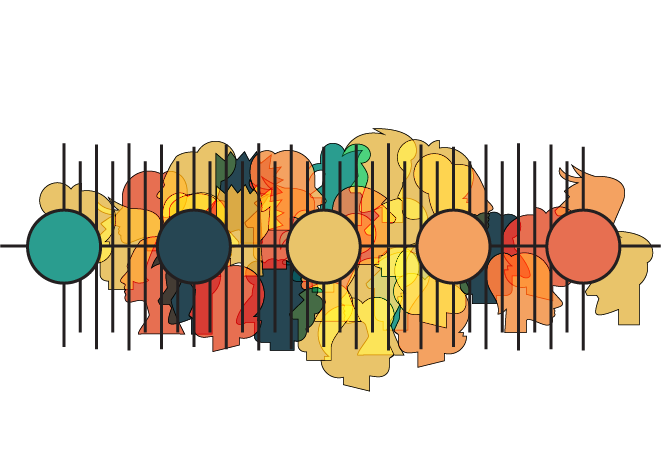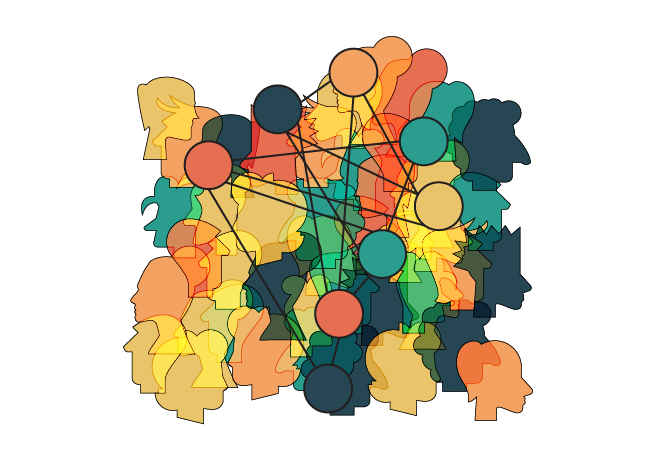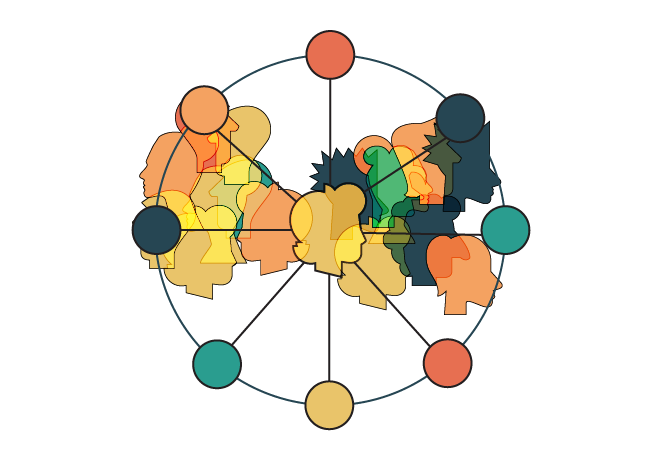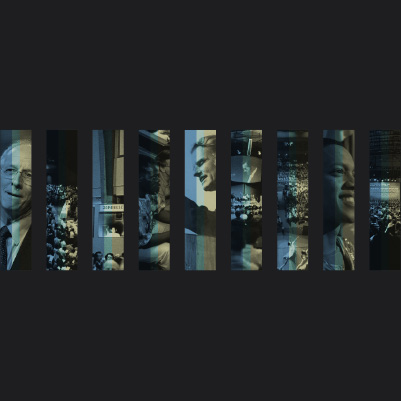Have you ever been at a gathering that changed your life? I have—at least, I believed so. But did the gathering really change your life, and why this gathering and not all the others you attended? Probably because of something that you didn’t take into account: the networks you became a part of.
I love gatherings. I love the atmosphere, the excitement, the constant learning, the beauty of a well-orchestrated gathering. A great gathering can make you feel like you can move mountains, energizing you to bring change into your daily life.
A great gathering can make you feel like you can move mountains, energizing you to bring change into your daily life.
I have been involved in organizing multiple gatherings over the years, from small gatherings to multilingual European gatherings with up to 4,000 people. And every time I ask myself afterward, ‘Was it worth it?’ All the money. All the time. All the tears. Did we make an impact in the lives of the people?
As the Lausanne Movement gears up for the Fourth Congress on World Evangelization to be held in Seoul in 2024, I’m starting to ask myself: will Seoul 2024 be worth it?
In 2013 I was working with the Evangelical Alliance in Hamburg, Germany, while also writing a master’s thesis. A few years prior, the Evangelical Alliance had organised several conferences called ‘The Best for the City’. The goal was to inspire people to live an authentic and relevant Christian life in their daily life and not to separate their workplace and their faith.
My research was centred around a key question: How did the conferences change the lives of the participants, and maybe even the city? And what role do networks play when it comes to the effectiveness of gatherings?
Measuring the Success and Effectiveness of a Gathering
After a gathering has been held, one question usually arises: How successful was the gathering? And how can we measure this success?
Successful gatherings do not need to be effective per definition—the organisers themselves can create the definition. Do they want an effective gathering that is financially sustainable, for instance with a set of measurable, quantitative goals? Or do they agree on a more subjective, qualitative definition of success that means when they look back, they see God worked at and through that gathering? Both are valuable. But it is good to clarify the organisers’ definition of success in the beginning, especially if stakeholders are involved that might have different expectations.
After a gathering has been held, one question usually arises: How successful was the gathering? And how can we measure this success?
Hamburg’s two Best for the City conferences aimed to inspire participants in their transformative actions. Furthermore, there was a goal to initiate platforms or networks to connect with people in similar situations. In this way, participants could support and inspire each other and initiate projects that shaped the city. With these objectives, it was far more difficult to measure success. The goal could not be measured by a quantitative evaluation of the gathering based on participant numbers, but rather through a pattern of how gatherings could sustainably inspire and influence people.
I therefore conducted a qualitative study with the help of interviews. By interviewing ‘experts’, a more objective and far-sighted collection of data seemed possible than through participant surveys. An ‘expert’ for this thesis was someone who ideally moderated one of the workshops or was involved in the preparation of the congress.
Through the course of my research, I learned several things. The most important thing I learned: gatherings make an impact. Even if this statement sounds terse, it is essential.
Each person described the gathering as an important time in their life. During the interviews their eyes literally sparkled while revelling in the beautiful memories and as they talked about the goal of the conference.
In my analysis I could identify three main takeaways. Each interviewee felt that:
- The gathering broadened their horizons. They got to know more people, some with the same interests and vision, some with new ideas but based on the same values.
- The gathering made them feel inspired, not only spiritually but also professionally. Interaction with other people from the same work field or interest group helped to gain new perspectives and ideas.
- The gathering gave them a community of fellowship and prayer—it gave them a network. The participants especially appreciated having this sense of connectedness.
In my interviews, you could see the effect of the conference on the people. They were inspired, they had a good time, and they made important connections. It was this final point that was particularly important in the lasting impact of a gathering.
ARTICLE
Changing the World, One Nomination at a Time
The story of a mystery nominator from the First Lausanne Congress.

Why Do We Need Networks?
In my research I looked at the effects of networks in leading to lasting change. The overall goal of networks is to inform, inspire, and shape, and in this way sometimes networks can become a powerful force. One interview partner summed it up this way: ‘I believe that [. . .] transformation or more lasting impact can only come from a large number of Christians or a plurality of churches.’
The people I interviewed enjoyed being involved in and supported by local networks because it gave them a community of people they felt connected to and mutually encouraged by. Networks brought them inspiration through interactions and events, and kept them informed about new developments while also broadening their horizons. In the Christian context, networks were also a spiritual community for prayer and fellowship.
In this way, networks help us overcome the significant obstacles we believers face when it comes to living impactful lives. Prayer and encountering God in a network community can give us energy to invest in new endeavors. The inspiration, professional training, and cutting-edge information we can obtain from a network can also counter the discouragement we feel as individuals when we try to impact society. Networks, and the gatherings from which they originate, can give us the strength and companions we need to nurture and grow our ideas for transforming society.
Transformative action is a process that sometimes grows over years. Gatherings can be an amplifier for this, but networks are the true ‘silent’ heroes.
Thus, attending a gathering is only one step. Transformative action is a process that sometimes grows over years. Gatherings can be an amplifier for this, but networks are the true ‘silent’ heroes. Networks give us the daily life companions with whom we can overcome obstacles on a daily basis, and can serve as powerful platforms for convening transformative gatherings. Networks and gatherings are not mutually dependent, but have a mutually reinforcing effect.
Seoul 2024 Will Not Change Your Life—but Lausanne 4 Might
The Lausanne Congresses on World Evangelisation have always held a special significance in the history of the Movement. You feel privileged when you get selected—it’s a once in a lifetime opportunity. Now we are looking towards the Fourth Congress that will happen in September 2024 in Seoul.
But there is something different about this congress. This one is more intentionally designed to be a part of a movement, a journey. This journey is what we call Lausanne 4.
Many people are wondering, will I be invited to attend Seoul in person? But I would say that the question should rather be this: How can I connect to the Movement, and with whom would I like to journey alongside?
The journey began in 2019 with listening calls held throughout the regions and issue networks. This year we will have ten gatherings in regions all over the world, along with additional gatherings to cover topics like intergenerational leadership. The journey also includes the Fourth Congress in Seoul.
Many people are wondering, will I be invited to attend Seoul in person? But I would say that the question should rather be this: How can I connect to the Movement, and with whom would I like to journey alongside?
There are several ways you can join us in this journey. First, who would you like to nominate? The nomination process is not only for Seoul 2024 in-person and virtually, but intentionally designed for the whole journey. When you apply, you do not apply only for Seoul but you might also be selected to join a gathering in your region. Make sure to nominate someone, and to apply now if you have been already nominated.
Another step of the journey where you can join us are our Listening to God calls, which happen every Wednesday at 9:00 Eastern time. Together as a global church we listen to Scripture, pray, and share in fellowship. I invite you to join us.
Congresses can only have a lasting effect if they are accompanied by networks.
Seoul 2024 is only one milestone of many. In some ways, it seems strange for me to say this as Lausanne’s director of gathering support: Seoul 2024 will neither change you nor the world around you. But if you are connected in your country, in your region, and with people who share your passion for a missional opportunity, then together we will be able to change the world.
Congresses can only have a lasting effect if they are accompanied by networks. I want to encourage you to not only look towards Seoul 2024 but to look around you, where you can already make connections. And I invite you to join Lausanne in the journey towards 2050.


